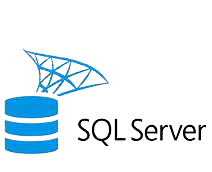Description
MCSE: Data Management and Analysis ( Development
Duration: 7 days
The Academy of South Florida offers the fastest, most effective method to learn the industry-standard, fundamental features of Microsoft SQL Server that have made Microsoft’s premiere database solution a worldwide leader in data-driven business and application infrastructure.
With this SQL Server 2016 boot camp, you will gain valuable insight into the new, powerful capabilities that SQL Server 2016 adds to a database developer and administrator’s solutions toolbox.
MCSE: Data Management and Analysis certification covers everything from designing, installing, configuring, and maintaining a Microsoft Database environment, to implementing and troubleshooting database objects. This program covers all material and exams necessary to achieve an MCSA in Microsoft SQL Server 2016 Database Development and MCSE: Data Management and Analysis.
This 7-day boot camp is a combination of the following official Microsoft courses:
• 20761A: Querying Data with Transact SQL
(Course is available, Microsoft currently offers the exam only in Beta version… updates coming soon.)
• 20762A: Developing SQL Databases
(Course is available, Microsoft has not yet released the exam… updates coming soon.)
• 20465A: Designing Database Solutions for Microsoft SQL Server
(Course and exam available but only for 2014 SQL Server thus far…updates coming soon.)
This course provides students with the technical skills required to write basic Transact-SQL queries for Microsoft SQL Server 2016. This course is the foundation for all SQL Server-related disciplines; namely, Database Administration, Database Development, and Business Intelligence. This course helps people prepare for exams 70-761. This course provides students with the knowledge and skills to maintain a Microsoft SQL Server 2016 database. The course focuses on teaching individuals how to use SQL Server 2016 product features and tools related to maintaining a database. Also, this course helps you prepare for the Exam 70-762. Database Developing and warehousing is a solution organizations use to centralize business data for reporting and analysis. This instructor-led course focuses on teaching individuals how to create a data warehouse with SQL Server 2016, implement ETL with SQL Server Integration Services, and validate and cleanse data with SQL Server Data Quality Services and SQL Server Master Data Services. This course helps people prepare for exams 70-465.
After completing this course, students will be able to:
Write SELECT queries
Query multiple tables
Use built-in functions
Use subqueries
Execute stored procedures
Use set operators
Implement error handling
Implement transactions
Use table expressions
Sort and filter data
Use window ranking, offset and aggregate functions
Query SQL Server metadata
Program with T-SQL
Improve query performance
Plan and install SQL Server.
Describes the system databases, the physical structure of databases, and the most common configuration options related to them.
Explain the concept of the transaction log and SQL Server recovery models and implement different backup strategies available with SQL Server.
Create SQL Server Backups.
Restore SQL Server databases.
Use the import/export wizards and explain how they relate to SSIS.
Work with SQL Server security models, logins, and users.
Work with fixed server roles, user-defined server roles, fixed database roles, and user-defined database roles.
Work with permissions and the assignment of permissions.
Work with SQL Server Audit.
Work with SQL Server Agent, jobs, and job history.
Implement SQL Server agent security, proxy accounts, and credentials.
Configure database mail, alerts, and notifications.
Create database maintenance plans.
Work with SQL Profiler and SQL Trace stored procedures.
Introduce DMVs and the configuration of data collection.
Work with Central Management Servers and Multi-Server queries, Virtualization of SQL Server, and Data-Tier Applications.
Troubleshoot SQL Server databases.
Describe data warehouse concepts and architecture considerations.
Select an appropriate hardware platform for a data warehouse.
Design and implement a data warehouse.
Implement Data Flow in an SSIS Package.
Implement Control Flow in an SSIS Package.
Debug and Troubleshoot SSIS packages.
Implement an SSIS solution that supports incremental data warehouse loads and changing data.
Integrate cloud data into a data warehouse ecosystem infrastructure.
Implement data cleansing by using Microsoft Data Quality Services.
Implement Master Data Services to enforce data integrity.
Extend SSIS with custom scripts and components.
Deploy and Configure SSIS packages.
Describe how information workers can consume data from the data warehouse
Prerequisites
Before attending this course, students must have:
Working knowledge of relational databases.
Basic knowledge of the Microsoft Windows operating system and its core functionality.
Before attending this course, students should have:
Basic understanding of virtualization technology (Classroom labs utilize virtual machines)
What’s included?
- Authorized Courseware
- Intensive Hands on Skills Development with an Experienced Subject Matter Expert
- Hands-on practice on real Servers and extended lab support 1.800.482.3172
- Examination Vouchers & Onsite Certification Testing- (excluding Adobe and PMP Boot Camps)
- Academy Code of Honor: Test Pass Guarantee
- Optional: Package for Hotel Accommodations, Lunch and Transportation
With several convenient training delivery methods offered, The Academy makes getting the training you need easy. Whether you prefer to learn in a classroom or an online live learning virtual environment, training videos hosted online, and private group classes hosted at your site. We offer expert instruction to individuals, government agencies, non-profits, and corporations. Our live classes, on-sites, and online training videos all feature certified instructors who teach a detailed curriculum and share their expertise and insights with trainees. No matter how you prefer to receive the training, you can count on The Academy for an engaging and effective learning experience.
Methods
- Instructor Led (the best training format we offer)
- Live Online Classroom – Online Instructor Led
- Self-Paced Video
Speak to an Admissions Representative for complete details
| Start | Finish | Public Price | Public Enroll | Private Price | Private Enroll |
|---|---|---|---|---|---|
| 5/12/2025 | 5/18/2025 | ||||
| 6/2/2025 | 6/8/2025 | ||||
| 6/23/2025 | 6/29/2025 | ||||
| 7/14/2025 | 7/20/2025 | ||||
| 8/4/2025 | 8/10/2025 | ||||
| 8/25/2025 | 8/31/2025 | ||||
| 9/15/2025 | 9/21/2025 | ||||
| 10/6/2025 | 10/12/2025 | ||||
| 10/27/2025 | 11/2/2025 | ||||
| 11/17/2025 | 11/23/2025 | ||||
| 12/8/2025 | 12/14/2025 | ||||
| 12/29/2025 | 1/4/2026 |
Curriculum
- Module 1: Introduction to Microsoft SQL Server 2016
- Module 2: Introduction to T-SQL Querying
- Module 3: Writing SELECT Queries
- Module 4: Querying Multiple Tables
- Module 5: Sorting and Filtering Data
- Module 6: Working with SQL Server 2016 Data Types
- Module 7: Using DML to Modify Data
- Module 8: Using Built-In Functions
- Module 9: Grouping and Aggregating Data
- Module 10: Using Subqueries
- Module 11: Using Set Operators
- Module 12: Introduction to Database Development
- Module 13: Designing and Implementing Tables
- Module 14: Advanced Table Designs
- Module 15: Ensuring Data Integrity through Constraints
- Module 16: Introduction to Indexes
- Module 17: Designing Optimized Index Strategies
- Module 18: Columnstore Indexes
- Module 19: Designing and Implementing Views
- Module 20: Designing and Implementing Stored Procedures
- Module 21: Designing and Implementing User-Defined Functions
- Module 22: Responding to Data Manipulation via Triggers
- Module 23: Using In-Memory Tables
- Module 24: Implementing Managed Code in SQL Server
- Module 25: Storing and Querying XML Data in SQL Server
- Module 26: Storing and Querying Spatial Data in SQL Server
- Module 27: Storing and Querying BLOBs and Text Documents in SQL Server
- Module 28: Introduction to Enterprise Data Architecture
- Module 29: Multi-Server Configuration Management
- Module 30: Monitoring SQL Server 2014 Health
- Module 31: Consolidating Database Workloads with SQL Server 2014
- Module 32: Introduction to Cloud Data Solutions
- Module 33: Introduction to High Availability in SQL Server 2014
- Module 34: Clustering with Windows Server and SQL Server 2014
- Module 35: AlwaysOn Availability Groups
- Module 36: Planning High Availability and Disaster Recovery
- Module 37: Replicating Data


